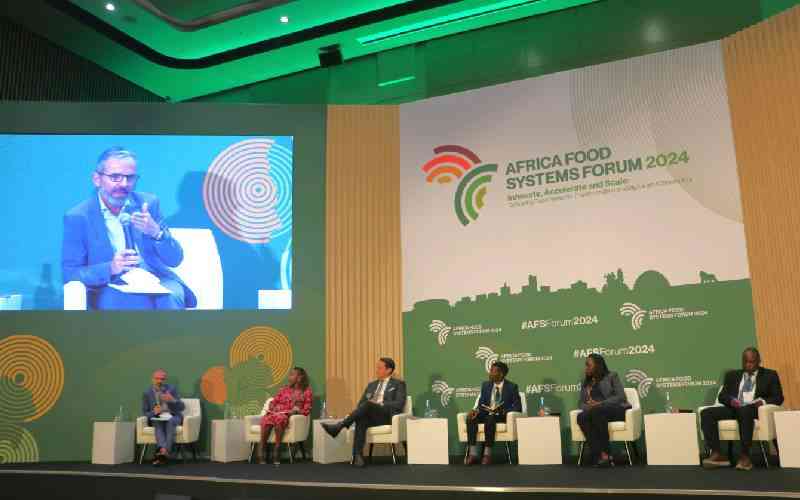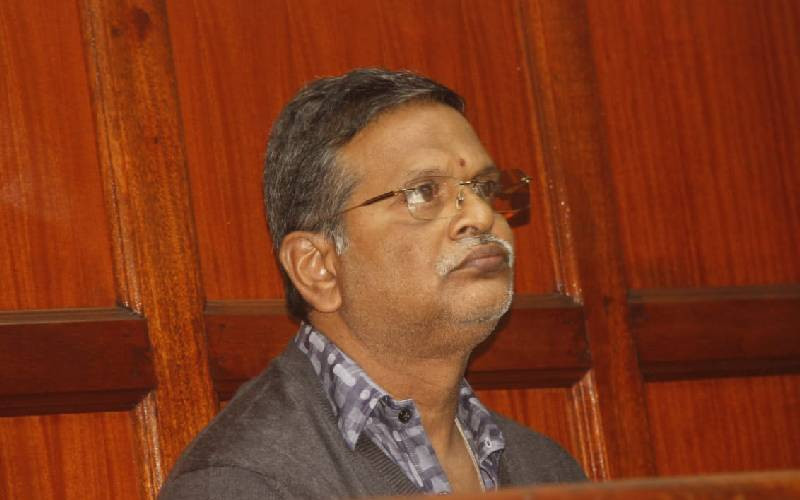
Panelists during the Africa Food Systems Forum 2024 in Rwanda. [Courtesy]
Agriculture experts have called for knowledge transfer, access to finance, inputs, and policies that support smallholder farmers.
They said collaboration and partnerships within the agricultural value chain is key to help smallholder farmers maximise the benefits of regenerative agricultural practices. Regenerative agriculture is an outcome-based production system, where improving soil health is at its core aiming to increase resilience.
Smallholder farmers produce a third of the global food supply, with figures in some African countries reaching between 70 per cent – 80 per cent but they face significant risks from poverty, climate change, and hunger.
However, Jens Hartmann, Head of Bayer Crop Science EMEA said regenerative and adaptive agricultural practices are increasingly seen as a way to combat these challenges.
Hartmann emphasized that forging stronger partnerships is key to unlocking the potential of regenerative agriculture for smallholders.
“Producing more while restoring more is at the heart of regenerative agriculture, but it requires a concerted effort to support farmers already impacted by climate change,” he said.
“The acceptance and understanding of regenerative agriculture by smallholder farmers is crucial to Bayer’s mission of achieving Health for All, Hunger for None,” he added.
In a statement, Mildred Nadah Pita, Head of Public Affairs and Sustainability Africa at Bayer said: “One of the key challenges in transitioning to regenerative agriculture is demonstrating its value to smallholder farmers and showing how these practices can enhance both productivity and economic sustainability.”
Samuel Nsengiymva, a young Rwandan farmer associated with AgriResearch Unguka, highlighted the importance of training and educating smallholder farmers in regenerative agriculture, stressing that partnerships and platforms are essential for knowledge sharing.
They were speaking in Rwanda before the official opening of the Africa Food Systems Forum 2024, during a panel discussion titled “Regenerative Revolution: Building Sustainable Solutions for Smallholder Farmers,” bringing together industry leaders from Bayer, Opportunity International, and the International Potato Center.
Panelists stressed the need to enhance understanding and adoption of regenerative agricultural practices that maintain land productivity, restore natural resources, and mitigate climate change.
“We need to align efforts across research, knowledge transfer, and farmer enablement. African farmers are already implementing elements of regenerative agriculture that protect soil health, biodiversity, and water sources. These initiatives must be recognized, supported, and encouraged through agricultural policies,” said Pita.
Regenerative interventions across the agricultural value chain include improving soil health, mitigation of climate change through greenhouse gas emissions reductions and increased carbon removals.
Other interventions are maintaining, preserving, or restoring on-farm biodiversity, conserving water resources through improved water retention and decrease in water run-off, and improving the social and economic well-being of farmers and communities.
 The Standard Group Plc is a multi-media organization with investments in media platforms spanning newspaper print
operations, television, radio broadcasting, digital and online services. The Standard Group is recognized as a
leading multi-media house in Kenya with a key influence in matters of national and international interest.
The Standard Group Plc is a multi-media organization with investments in media platforms spanning newspaper print
operations, television, radio broadcasting, digital and online services. The Standard Group is recognized as a
leading multi-media house in Kenya with a key influence in matters of national and international interest.











